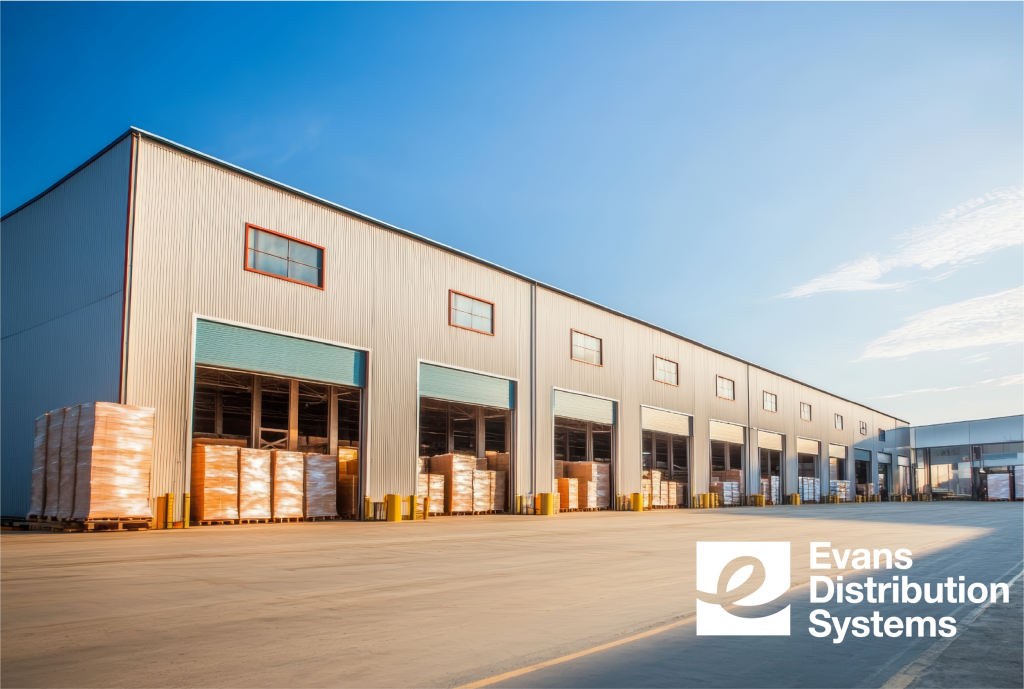
Retail compliance is a critical component of supply chain management for manufacturers, distributors, and ecommerce brands selling through major retailers. Big-box retailers like Walmart, Target, and Costco have strict routing guides and delivery windows that must be followed to avoid costly chargebacks. These chargebacks, which can range from hundreds to thousands of dollars per infraction, are penalties for noncompliance, such as missed delivery appointments, inaccurate labeling, or improper packaging.
For growing brands, these fees can quickly cut into margins and impact profitability. However, working with a third-party logistics (3PL) provider that offers consolidation services can be a powerful strategy for mitigating these risks.
What Is Retail Consolidation?
Consolidation is the process of combining multiple small shipments from different suppliers or distribution points into a single, larger shipment headed to the same destination. Instead of sending partial truckloads to a retailer, consolidated freight is grouped together at a central hub, often a 3PL-operated warehouse, and shipped as a full truckload (FTL) or less-than-truckload (LTL) that meets the specific requirements of the retailer. This not only reduces transportation costs but also ensures more predictable delivery windows and a higher level of shipment accuracy.
The Retail Compliance Challenge
Each retailer has a unique set of compliance requirements, from specific carton labeling and pallet configuration to advance shipment notifications (ASNs) and delivery scheduling. Failure to comply can trigger automatic chargebacks. For brands trying to manage this process internally or across multiple fulfillment centers, staying compliant with diverse requirements can be overwhelming, especially when shipment volumes increase or product lines expand.
Chargebacks aren’t just an annoyance; they’re a significant financial liability. A few missteps each month can easily add up to tens of thousands of dollars annually. Moreover, repeated noncompliance can damage a vendor’s relationship with the retailer, resulting in reduced shelf space, slower purchase orders, or even contract termination.
How Consolidation Helps Avoid Chargebacks
Consolidation services offered by experienced 3PL providers help streamline shipments in ways that directly reduce chargeback risks. Here are the benefits of consolidation services;
- Consolidated freight is managed in a centralized facility where quality control, labeling, and packaging standards are consistently applied. This ensures a single point of control, allowing for greater accuracy and visibility.
- Consolidated shipments are more likely to meet retailer delivery windows and appointment times. Retailers prefer larger, more efficient deliveries to reduce dock congestion and streamline inbound processing. A consolidated load is often prioritized because it arrives on time, fully documented, and aligned with the retailer’s expected volume and format. This reduces the chance of penalties related to late or missed deliveries.
- 3PL operations that utilize warehouse management systems (WMS) and transportation management systems (TMS) track compliance requirements of each retailer. These platforms automate the creation of compliant shipping labels, ASN transmissions, and routing instructions. These systems minimize human error and improve supply chain performance across the board.
The Strategic Advantage of 3PL Expertise
3PLs like Evans Distribution who specialize in retail fulfillment often have pre-established retailer relationships, preferred carrier networks, and direct access to distribution centers. This allows them to pre-book delivery appointments, ensure proper documentation, and meet compliance standards at scale. They also have the space, labor, and infrastructure to scale quickly to address seasonality, new product lines, product promotions, order disruptions and other unforeseen shifts in order volumes.
Additionally, by consolidating shipments through a 3PL, brands gain access to shared transportation costs. Instead of each vendor paying for a separate truck, the cost of the full truckload is distributed across all the shippers in the consolidation pool. This results in significant freight savings while improving service levels.
Conclusion: Smarter Shipping for Retail Success
In today’s competitive retail environment, avoiding chargebacks isn’t just about following rules, it’s about having the right logistics partner and processes in place to ensure flawless execution. Consolidation services, especially when managed by an experienced 3PL, offer a smart and scalable way to meet retailer compliance requirements while reducing costs and improving delivery performance.
For growing brands and manufacturers, embracing consolidation is more than a logistics tactic, it’s a strategic move that protects margins, enhances relationships with retail partners, and lays the foundation for long-term growth.
